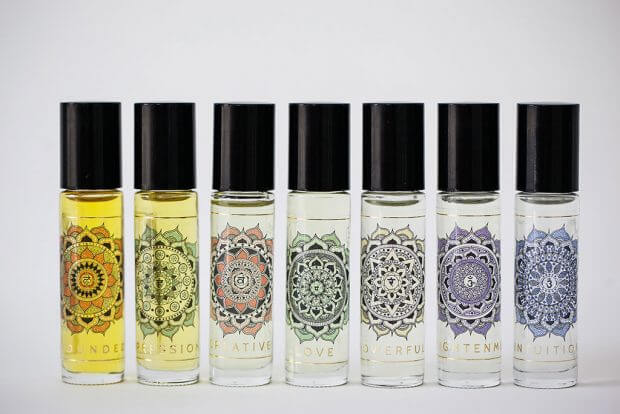Should Everyone Switch Over To Natural Perfume?

Did you know that more than all other senses, scent is associated with memory?
The entire fragrance industry has been built on the emotional connections we have to scents and all of the memories that are evoked.
It is one of the major reasons why Chanel No. 5 has been the world’s top-selling perfume for 98 years. However, there is a major turning point within the beauty industry upon us.
The current clean beauty movement, one that used to be viewed as a niche trend in the past, has changed how beauty products are perceived.
Enter natural perfumes.
Even if you haven’t switched over to natural perfumes or other products, you have most likely felt the impact that it has made with more and more shopping options for natural fragrance products.
For example, aluminum-free deodorants have been launched by pharmacy brands such as Dove.
According to naturopath experts at Proactiv Health, more mainstream brands have committed to eliminating more questionable ingredients. “Ingredients such as preservatives, phthalates and parabens are being removed from many cosmetic staples. Consumers are becoming more informed and want to make better choices about what they are putting in and on their bodies. However, the fragrance industry has not changed as quickly.”
So, with the movement towards natural scents and perfumes, here’s everything you need to know to make an informed decision.
What is a Natural Perfume?
The answer might depend on what person you ask.
In general, a natural fragrance uses essential and natural oil from plants as its major source of fragrance. For some, it means no synthetic flavors or fragrances, and no isolates – whether they are natural or not.
It is worthwhile to note that isolates are still used by some perfume brand formulas, although they are natural instead of synthetic.
What is an Isolate?
A natural isolate is a molecule that is isolated or removed from a natural fragrance type of material. That is, one odor gets distilled from a natural substance, rather than one created inside of a laboratory.
In the perfume world, usually that means molecules such as roses and citrus, which get extracted from flowers and fruits through the use of a distillation technique.
On the other hand, synthetic isolates are isolates that are produced via lab techniques, such as using fungi or bacteria.
How Can Materials be Extracted Without Isolates?
For brands that decide to formulate their products without any isolates, hydrodistillation is involved in the process.
It is a gentle immersion technique that captures the plant’s complete aromatic profile. In other words, you get the smell of the whole plant instead of just the single scent molecule.
Okay, but how harmful can it be to have a couple of spritzes of synthetic perfume?
According to the health experts at Expect Me, ingredients in synthetic cosmetics can cause reactions. “Perfume allergies are a lot more common than you might think, some symptoms include wheezing and headaches. Even so, the main problem with synthetic products is the phthalates common in synthetic perfumes. They’re included to extend the longevity of perfumes but can interrupt hormone activity because it is an endocrine-disrupting chemical.”
However, manufacturers are not required to list all of the materials that are part of a fragrance – so that is why often the ingredient list just says “fragrance.”
In addition to hormones, fragrances are also one of the leading causes of the condition of cosmetic contact dermatitis – which may cause stinging, redness, and rashes.
So, what ingredients are avoided when a natural perfume is formulated? This is usually the same shelf life-enhancing ingredients that are avoided by natural skincare brands: phthalates and parabens.
Do Natural Fragrances Have Shorter Shelf Lives?
Yes. Usually, synthetics have a three to five year shelf life, while natural perfumes without preservatives have about a two year ‘best before date’ after opening.
After that, due to oxidation, the perfume might become darker in colour, and the scent might change (the top notes might dissipate at times, so it doesn’t smell as bold as in the past).
Are there any other differences between synthetic and natural fragrances?
Natural fragrances are more likely to vary on the wearers’ skin. Also, botanical perfumes are less overpowering and cloying compared to synthetic perfumes. Due to that, they might not last as long on your skin.
However, that isn’t necessarily bad. Most artificial fragrances need to be applied very sparingly.
Many natural perfumes come in smaller bottles or rollerballs since these delicate scents are intended to be reapplied over the course of the day.
With all the benefits, why not switch your next perfume to a natural one?
Looking for handmade candles, essential oils or organic products? Explore the full Lemon Canary range today!
AUTHOR BIO:
Tracey Hardacre is an experienced writer and content creator from Sydney, Australia. A creative at heart, she enjoys spending time at the nearest museum, art gallery or theatre. And if there isn’t one nearby, she’ll find one.
ABOUT
LEMON CANARY
We all have stories… losing loved ones, celebrating milestones, moments of deep gratitude. Sometimes only a special and amazing, one-off, thought-filled, love-saturated gift will do. And that’s what Lemon Canary loves doing best.



